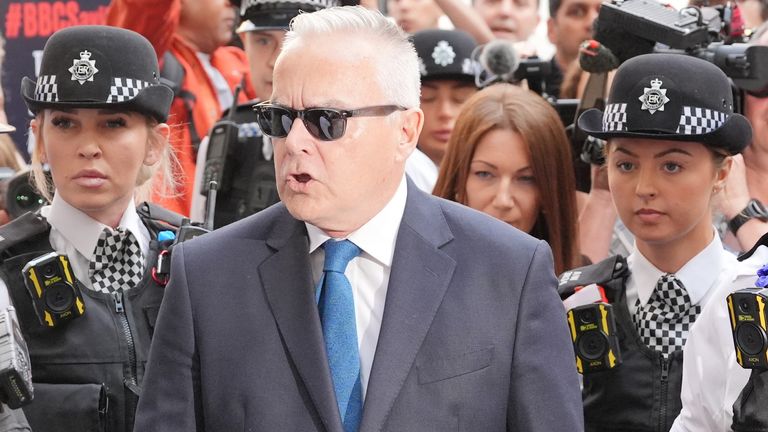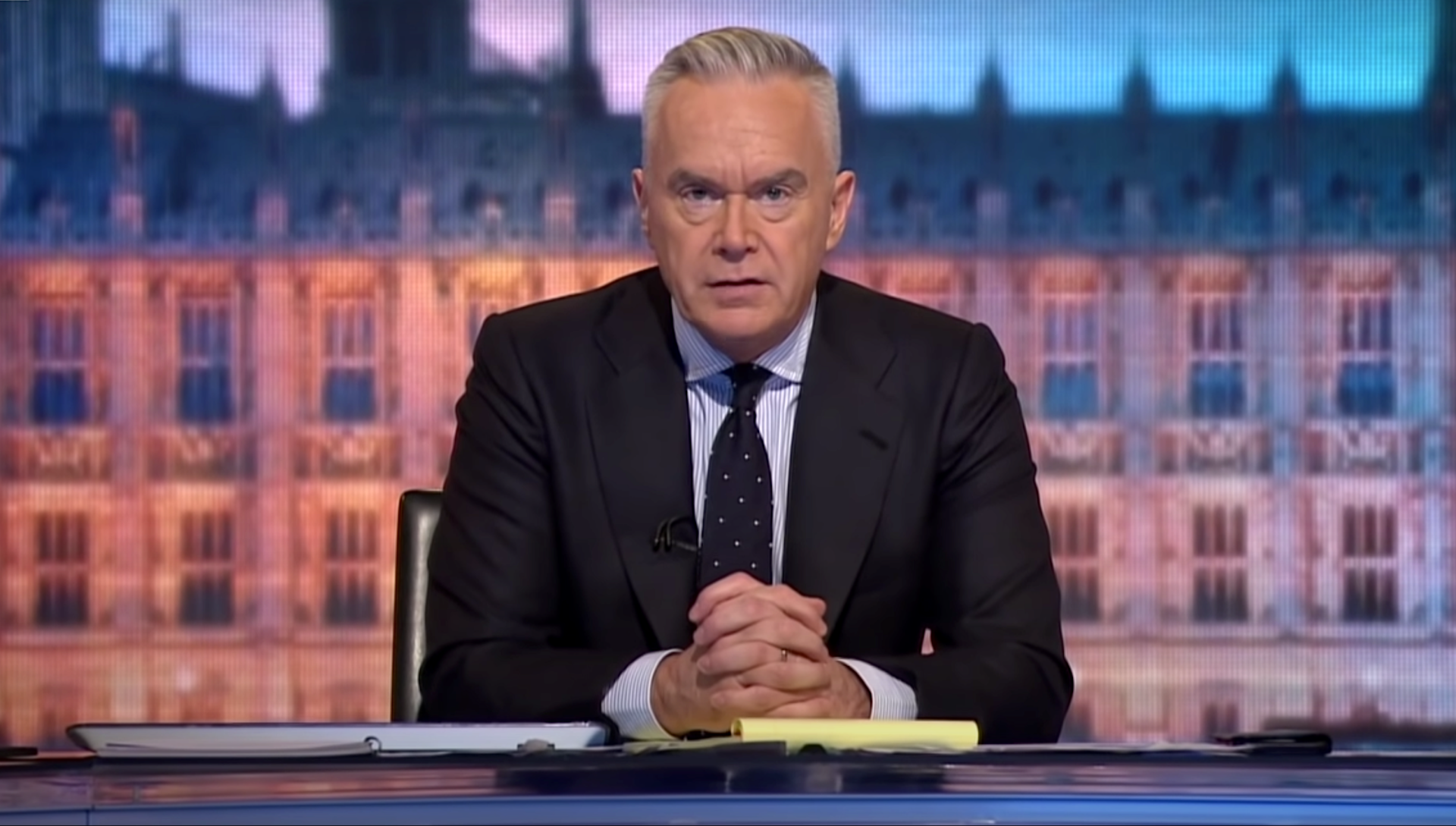
Huw Edwards, a disgraced presenter who acknowledged creating obscene photos of minors as a result of his arrest in November of the previous year, has been requested by the BBC to refund the sum of two hundred thousand pounds that he was paid after his arrest.
The corporation issued a statement in which it stated that Edwards, who was responsible for the announcement of the death of Queen Elizabeth II, had “undermined trust in the BBC and brought us into disrepute.” The corporation also demanded that Edwards reimburse his salary. It is not entirely clear whether the BBC has the legal power to reclaim the money or whether it is only making a request to Edwards to return the payments.
As a result of the Sun’s disclosure of Edwards’ cash payments to a young guy for sexually explicit photographs, as well as other charges of inappropriate texts addressed to younger BBC staff, Edwards had been signed off work with full pay since June of last year.
Edwards was taken into custody in November for a completely unrelated offence when his phone number was discovered by South Wales police in a phone that belonged to a paedophile who had been convicted of the conviction. It was ultimately because of this that he entered a guilty plea to the charge of producing photographs of children.
There were a few officials at the BBC who were aware of Edwards’ detention in the autumn of last year. These executives included the director general, Tim Davie, and the head of BBC News, Deborah Turness. However, because no charges were made against Edwards, they did not immediately fire him, which is a choice that they may now regret. After a period of medical leave during which he earned hundreds of thousands of pounds, the newsreader eventually negotiated his departure from the BBC in April.
A month ago, Edwards entered a guilty plea to all of the charges that were brought against him. He eventually faced charges for possessing 41 pornographic images of children that someone else had sent to him via WhatsApp.

The people working in the BBC newsroom have been extremely angry with Edwards for continuing to earn his income despite the fact that he is facing such serious charges. This is especially true at a time when other employees have been going through the process of being laid off and have been facing pay increases that are lower than inflation. At the time of his resignation from the BBC, he had recently signed a new deal that would pay him a salary of £435,000, making him one of the highest-paid personalities at the corporation.
The board of directors of the BBC expressed their unwavering support for Davie’s handling of the situation and placed the blame on Edwards. They claimed that Davie and his colleagues did everything in their power to fulfil their contractual commitments to the newsreader, taking into account the information that was available to the BBC at the time.
They made the following statement: “Today, the board has authorised the executive to seek the return of salary paid to Mr. Edwards from the time he was arrested in November of the previous year.” In response to the heinous crime, Mr. Edwards entered a guilty plea. In the event that he had provided truthful responses to the BBC’s inquiry into his arrest, we would have never continued to provide him with public funds. With his actions, he has unquestionably damaged people’s faith in the BBC and brought us into contempt.
In addition to this, they disclosed that the board had commissioned an independent assessment that would “make recommendations on practical steps that could strengthen a workplace culture that is in line with BBC values.”
The statement went on to say that “the board believes that these events have also put a spotlight on the question of power imbalances in the workplace.” This is despite the fact that the substance of the claims against Mr. Edwards is linked to his own personal life. In particular, we continue to be worried about the possibility of inappropriate behaviour in the workplace, particularly in environments that are conducive to creative and editorial work. Despite the fact that power inequalities in the workplace present difficulties for a number of different employers, the BBC must ensure that it maintains the highest possible standards regarding its own operations.
The British Broadcasting Corporation (BBC) is preparing itself for additional enquiries on Davie’s handling of the incident when parliament returns in September. The newly established Conservative-run House of Commons cultural select committee will contact the director general with enquiries.
Lisa Nandy, the culture secretary, stated that she would not interfere in the operations of the corporation; nonetheless, she did discuss the Edwards incident with Shamir Shah, the chair of the BBC. According to what she said, “BBC staff must be able to feel safe in the workplace and be confident that if non-editorial complaints are raised, they will be acted upon and dealt with fairly and decisively.”